Worship Wilson – April 13, 2022
The following, by Sherard Edington, appeared in the Religion Column of the WilsonPost.
We all know the saying, “Time heals all wounds.” It is a comforting but misleading sentiment because some wounds will in fact kill us. In addition, there are wounds we don’t want to heal and so we pick at them obsessively and wallow in our pain.
A wound is the result of an injury, a loss, or an intensely painful experience—physical or emotional. Following an injury, our lives revolve around our wound. Wounds demand our attention. Eventually, if allowed to heal, a wound becomes a scar—a tangible memory of our pain.
I am looking at one particular scar that is inscribed on my right hand at the base of my thumb. This unassuming little scar is a 40-year-old reminder that I should never run across the yard with a serrated kitchen knife sticking out of my back pocket. A more recent scar on my palm is a reminder to pay close attention when using a table saw. A scar on my soul is a reminder to always show compassion to others. Just writing these words makes me squirm in memory of the pain. The scars are doing their job.
Too often we ignore our scars and choose to live from our wounds in ceaseless rage and hurt and confusion. We become self-centered and self-absorbed and demand that everyone pay attention to us and our wound. On the other hand, a scar points away from itself. A scar proclaims, “I have learned from that experience, and I choose not to go there again.” We can even use our scars as balm to bring healing to others in pain. Wounds lack that power.
On Sunday, Christians will celebrate Easter. The greatest injury Christians have suffered is the crucifixion of our Christ. If we choose to view Easter as an open wound, then our faith devolves into endless fury and pain, and Jesus would forever hang crucified on the cross.
But Easter did not end on the cross. God intervened with power greater than we can imagine and transfigured the Easter wound into a glorious cross-shaped scar. That which died is alive. In the pain of Easter, we find a powerful testament to healing. There is no wound so devastating—even death—that God’s love cannot heal.
Amidst all the pain and suffering that exists in our world, Christians might embrace the Easter scar. It serves as a divine source of hope and healing. It is a scar that has defied death itself; it is a scar that is transforming our world.
As we approach the holy celebration of Easter, I challenge you to draw upon your scars and offer hope and healing to those consumed with pain. We are called to be Christ’s agents in this world. We must live from our scars, not our wounds.
As Easter approaches, my prayer is that you will experience sacred healing through the presence of God’s love made real to us in Jesus Christ. Wear your scars with pride.
—————————————-
Sherard Edington is the pastor of First Presbyterian Church in Lebanon and invites you to celebrate the Resurrection of the Lord on Easter Sunday at 11:00 a.m. On April 20, at 6:30 p.m., everyone is welcomed to First Presbyterian to hear Vanderbilt professor Rachel Heath talk about “The History of Christian-Muslim Relations.”




